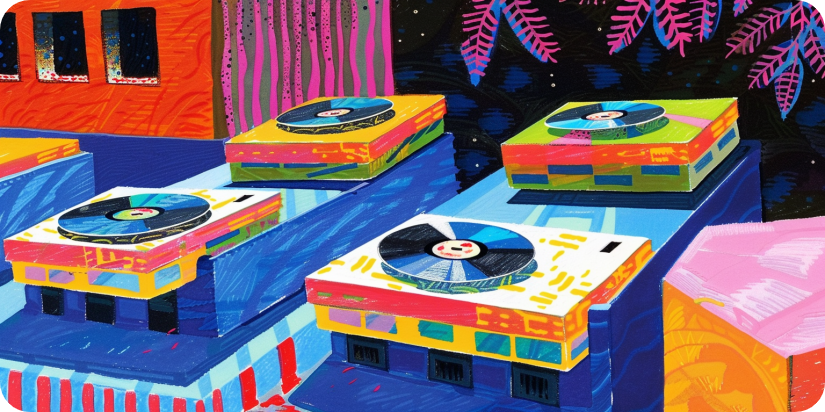Are Music NFTs Dead?

This week, Cooper Turley, creator of the onchain record label Coop Records, kicked off a wave of debate in the NFT scene by arguing that the original paradigm of music NFTs had failed.
Of course, there are a few things to parse here:
- Coop wasn’t asserting that music NFTs had failed for good. Just that an early vision of them had.
- He said collecting music should be free and accessible, i.e. more frictionless like enjoying a song on Spotify or YouTube.
- He warned against roadmap-itis, i.e. artists having to come up with various perks to bolster their drops, and expensive mints.
- Lastly, he suggested the old paradigm of music NFTs had given way to open edition drops, which are friendlier to artists and fans alike.
Regarding that first point, I do think NFTs as basic MP3 files (many of which may prove temporary via IPFS) aren’t compelling as a distribution avenue if they aren’t 1) wrapped up in a larger interesting project, or 2) aren’t used in more expansive ways.
An example of the former is The Album, a PleasrDAO-led project where fans can mint an encrypted but unlockable version of the Wu-Tang Clan’s legendary Once Upon a Time in Shaolin record for $1. The album is collectible in its own right, but the distribution experiment is also compelling and worth backing.
As for the latter, consider Sound Capsules, which lets you create simple audio players that can hold playlists of Zora music NFTs via ERC-6551. The underlying NFTs may be simple in a technical sense, but the platform over them lets you compose and play with them toward new ends.
On to Coop’s second point, I do think having music NFTs as free and as accessible as possible is smart in many cases, as that dynamic matches what most people expect when it comes to music UX.
Yet there are exceptions. Think of MyFi Studios, which creates fully onchain musical instruments, or “music toys,” like No Dice, a series of instruments with their loopers, pitchers, slicers, and sequencers entirely on Ethereum. These are innovative digital artifacts, but they’re also fun, interactive, and scarce. It’s fair to charge more than free for these literal collectibles, for example.
As for roadmap-itis and expensive music NFT mints, I’d agree that these aren’t right for most everyone, though I’d venture a guess that this approach could still work for really famous artists like Taylor Swift or Travis Scott. They’d have the muscle to make it work. Then again, these superstars are also the least likely to need or care for the composable, programmable indie possibilities around music NFTs, at least as things stand.
This brings us ‘round to Coop’s last point, “Music NFTs walked so open editions could run.” I can dig it. Or at least I know what he means.
I’m personally a fan of Zora’s open edition “free mints” model, where the artist charges no primary price but collectors pay a 0.000777 ETH fee, part of which gets redistributed back to artists, meaning they can earn more from Zora Protocol Rewards via music drops than they would via streaming platforms.
At Coop Records, Coop has also started subsidizing open edition music releases by paying collectors token rewards, e.g. $OP, through the Boost platform. The +$100,000 worth of rewards paid out to date has helped offset collectors’ overall minting costs to ~$1 a pop. Not bad! It’s a cool approach for others to consider here going forward, I think.
Zooming out, I find the debate around music NFTs this week encouraging. I’m reminded of how many passionate people care and how many cool experiments are unfolding around this scene right now. Ultimately, I think the best path forward for music NFTs is to keep leaning into experimentation, new ways, different approaches. In this regard, I know we’re in good hands between all of us.
The truth is, we’ve only just begun to dream what music NFTs can be. I’m bullish.